INTRODUCTION TO CRYPTO WALLETS-10 % To @Tron-Fan-Cub
Hey guys,
Today I would like us to look into a popular term known as "Crypto wallets". In as much as this term is popular, a lot still do not fully understand their various types, function, and security levels which is why I will be taking us through all them and I believe by the end of this lesson you will be able to clearly understand the term "Crypto wallet".
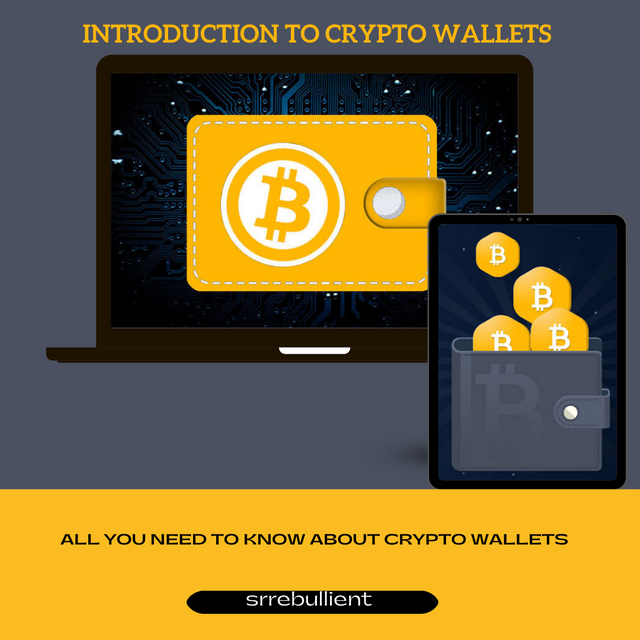
In a nutshell, a cryptocurrency wallet is a tool for interacting with a blockchain network. Software, hardware, and paper wallets are the three forms of crypto wallets available. They can also be referred to as hot or cold wallets, depending on their operating mechanics.
Software-based crypto wallets are more convenient to use than hardware wallets. Hardware wallets, on the other hand, are often the safest option. Paper wallets, on the other hand, are made up of a "wallet" that is printed on a sheet of paper, however its use is now considered outdated and unreliable.

Contrary to widespread belief, cryptocurrency wallets do not store digital assets. Instead, they provide you with the necessary tools to engage with a blockchain. To put it another way, these wallets can generate the necessary data for sending and receiving cryptocurrency via blockchain transactions. The pieces that make up such information include one or more pairs of public and private keys.
The wallet also has an address, which is a unique alphanumeric identifier generated by combining the public and private keys. A bitcoin address is essentially a specific "location" on the blockchain where money can be sent. This means you can give away your address to receive money, but not your private key.
The private key grants you access to your bitcoins, regardless of the wallet you use. As a result, if you have the private key, you can access your cash on another device even if your computer or smartphone has been hijacked (or seed phrase). It's worth noting that the coins are never entirely erased from the blockchain; they're only transferred from one address to another.
Yes, in a nutshell. You'll need a wallet address to keep and trade crypto, whether you're a frequent trader or a bitcoin HODLer. You can use your crypto exchange's hot wallet, a mobile wallet you download to your phone, a browser plugin, a desktop wallet, or a hardware wallet.

There are numerous options available. Here are some examples of several wallet types:
- Mobile wallets
- Desktop wallets
- Browser extention wallets
- Hot wallets
- Hardware wallets, etc.
According on how they operate, wallets can be classified as "hot" or "cold."
Any wallet that is connected to the Internet in some way qualifies as a "hot wallet." When you open a Binance account and send money to your wallets, you're putting into Binance's hot wallet. Traders and other frequent users will appreciate how simple it is to set up these wallets and how quickly the funds can be accessed.
Contrary to this, Cold wallets keep the keys offline on a physical medium, making them impenetrable to online attacks. As a result, cold wallets are a more safer option for "keeping" your coins than "saving" them. This approach, also known as cold storage, is best for long-term investors, or "HODLers."
Binance only keeps a limited amount of coins in its hot wallets to protect users' cash. The rest is held in cold storage and is not connected to the Internet. It's worth noting that Binance DEX is an alternative for those who don't want to retain their cash in a controlled exchange. It's a decentralized trading platform that lets you keep complete control over their private keys while also trading directly from their cold storage devices (hardware wallets).
There are many distinct types of software wallets, each with their own set of features. The majority of them are online in some way (hot wallets). Web, desktop, and mobile wallets are described in the following sections.
- Web wallets

Web wallets allow you to access blockchains using a browser interface without having to download or install anything. This is true of exchange wallets as well as other web-based wallets. In most cases, you can create a new wallet and password-protect it. On the other hand, certain service providers will hold and manage your private keys on your behalf. While this is more easy for inexperienced users, it is also a risky strategy.
You're entrusting your money to someone else if you don't have your private keys. Many web wallets now let you to handle your keys completely or through shared management to overcome this issue (via multi-signatures). As a result, it's crucial to examine each wallet's technological approach before deciding which is best for you. When using cryptocurrency exchanges, you should think about utilizing the various security features.
- Desktop wallets
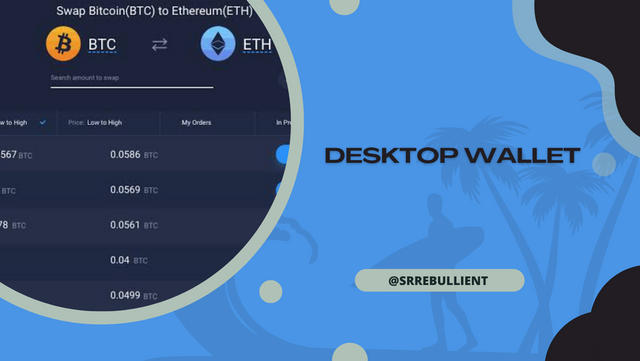
A desktop wallet, as the name suggests, is a piece of software that you download and use on your computer locally. Desktop wallets, in contrast to some web-based versions, provide you complete control over your keys and funds. A file named "wallet.dat" is saved locally on your computer when you create a new desktop wallet. You should encrypt this file with a personal password because it contains the private key information needed to access your cryptocurrency addresses.
In general, desktop wallets are safer than most web wallets, but before installing and using a cryptocurrency wallet, ensure sure your computer is free of viruses and malware.
- Mobile wallets
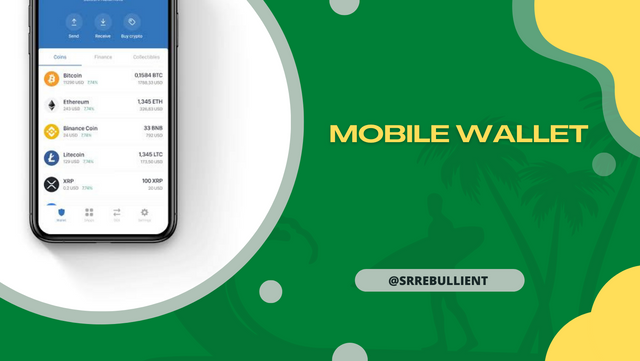
Mobile wallets work similarly to desktop wallets, except they're made for smartphones. These are useful since they enable you to transmit and receive cryptocurrency via QR codes.
As a result, mobile wallets are ideal for everyday transactions and payments, making them a realistic option for spending Bitcoin, BNB, and other cryptocurrencies in the real world. A popular mobile crypto wallet is Trust Wallet.
Malicious programs and malware infection can infiltrate mobile devices just like they can on computers. As a result, it's a good idea to password-protect your mobile wallet and keep a backup of your private keys (or seed phrase) in case your phone is lost or damaged.
- Hardware wallets
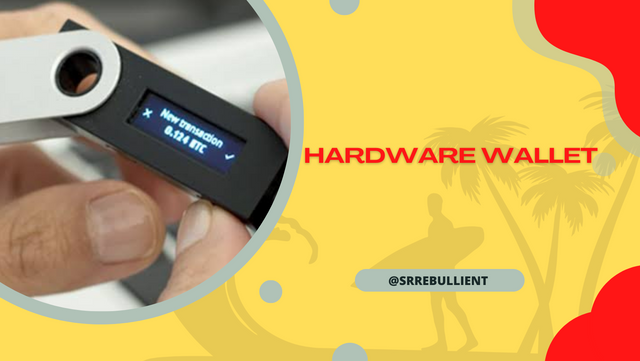
Hardware wallets are physical devices that use a random number generator to generate public and private keys (RNG). After that, the keys are saved on the device, which is not connected to the Internet. As a result, hardware storage functions as a cold wallet and is regarded as one of the safest solutions.
Smart wallets offer better protection against internet threats, but they can potentially be dangerous if the firmware isn't installed correctly. Hardware wallets are also less user-friendly than hot wallets, making it more difficult to access cash.
You can utilize Binance DEX to connect your device directly to the trading platform, overcoming the lack of accessibility. Because the private keys never leave your device, this is a secure method of accessing your assets. Some web wallet service providers provide a similar service, allowing users to connect their hardware wallets to their browser interface.
If you plan to keep your Bitcoin for a long time or if you have a considerable amount of it, you should use a hardware wallet. Most hardware wallets currently let you to set up a PIN number to protect your device as well as a recovery phrase – which can be utilized in the event that your wallet is misplaced.
- Paper wallets
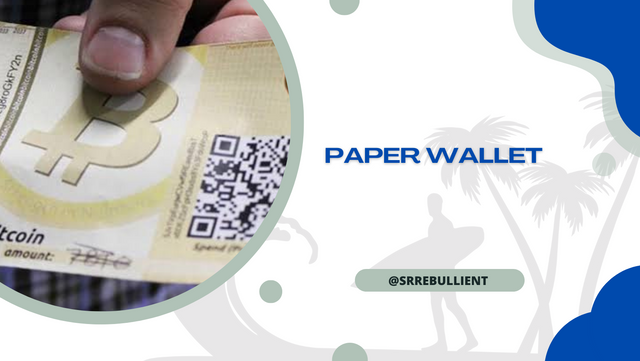
A paper wallet is a piece of paper with a crypto address and associated private key physically printed as QR codes. Following that, these codes can be scanned to complete cryptocurrency transactions.
While offline, you can download the code from several paper wallet websites to generate new addresses and keys. As a result, these wallets are very resistant to online hacking and might be used instead of cold storage.
The use of paper wallets, on the other hand, is currently seen as risky and should be avoided. It's critical to recognize the risks if you still want to utilize it. Paper wallets have a severe drawback in that they only allow you to send your complete balance at once, not fractional amounts.
Paper wallets, on the other hand, are now deemed unsafe and should be avoided due to their numerous problems. It's critical to recognize the risks if you still want to utilize it. Paper wallets have a severe drawback in that they only allow you to send your complete balance at once, not fractional amounts.
For instance, suppose you created a paper wallet and funded it with a total of 10 BTC over various transactions. If you want to spend 5 BTC, you should first send all ten coins to a different type of wallet and then spend a portion of the money (5BTC). You can return the 5 BTC to a fresh paper wallet later, but a hardware or software wallet is a better option.

Losing control of your cryptocurrency wallets might be extremely costly. As a result, backing them up on a regular basis is critical. Wallet.dat files or seed phrases are frequently used to accomplish this. A seed phrase, in essence, serves as a root key for a crypto wallet, producing and providing access to all keys and addresses. Create a backup of your password if you utilized password encryption.
Which crypto wallet you should use is a question that no one can definitively answer. If you trade frequently, a web wallet allows you to access your funds fast and trade with ease.
Your crypto is generally safe assuming you've taken extra precautions to safeguard your account using two-factor authentication (2FA) methods. Cold wallets, on the other hand, are a better option if you HODL a large amount of cryptocurrency that you do not intend to sell in the near future. They are not connected to the Internet, making them more secure and resistant to online phishing attacks or scams.

Crypto wallets are very essential as they serve to provide means of storing our digital assets. The security and efficiency of various crypto wallets differ and a user is expected to put certain things into consideration before choosing a crypto wallet.
Link to tweet
https://twitter.com/EbullientSrr/status/1536757727690637314?s=19
Thank you for contributing to #LearnWithSteem theme. This post has been upvoted by @daytona475 using @steemcurator09 account. We encourage you to keep publishing quality and original content in the Steemit ecosystem to earn support for your content.
Regards,
Team #Sevengers
The #learnwithsteem tag focuses on teaching through tutorials and lessons some knowledge, skill or profession that you have. Please avoid using it if it's not about that. Thank you!
Wow you have a good description of crypto wallet. Thank you. Continue brother.
Beautiful publication....
I really appreciate your explanation, they are really simple and concise
I'm glad you liked it.
Thank you so much
I really enjoyed your post. I am a huge fan and user of Mobile wallets then cold wallets specially for my long term coins as they are my safest and more preferred. Even Mobile wallets are not immune to external attack especially as hackers work day and night to improve their methods
You are right.
Hackers work tirelessly which explains why we should always be security cautious
Hello dearest friend @srrebullient
Thank you very much for giving such an informative post.
I enjoyed going through your post and I hope to read more of your interesting post.
#steem-on 💙
Thank you for your warm comment
This is fantastic from you friend, I really enjoyed reading your post, it's very informative. Thanks for sharing
Thank you for your encouraging comment.
You have done a detailed article related to Crypto wallets. Especially you have mentioned all the types of Crypto wallets. I really appreciate this interesting article.